7 Causes of Hip Pain at Night + Tips To Find Relief
One in 10 people are impacted by hip pain. For those who experience it mostly at night, the cause is likely their sleep position or mattress. Side sleepers are especially vulnerable to it as a result of pressure on the hip joint. Here we look at seven possible causes and share tips for pain relief.
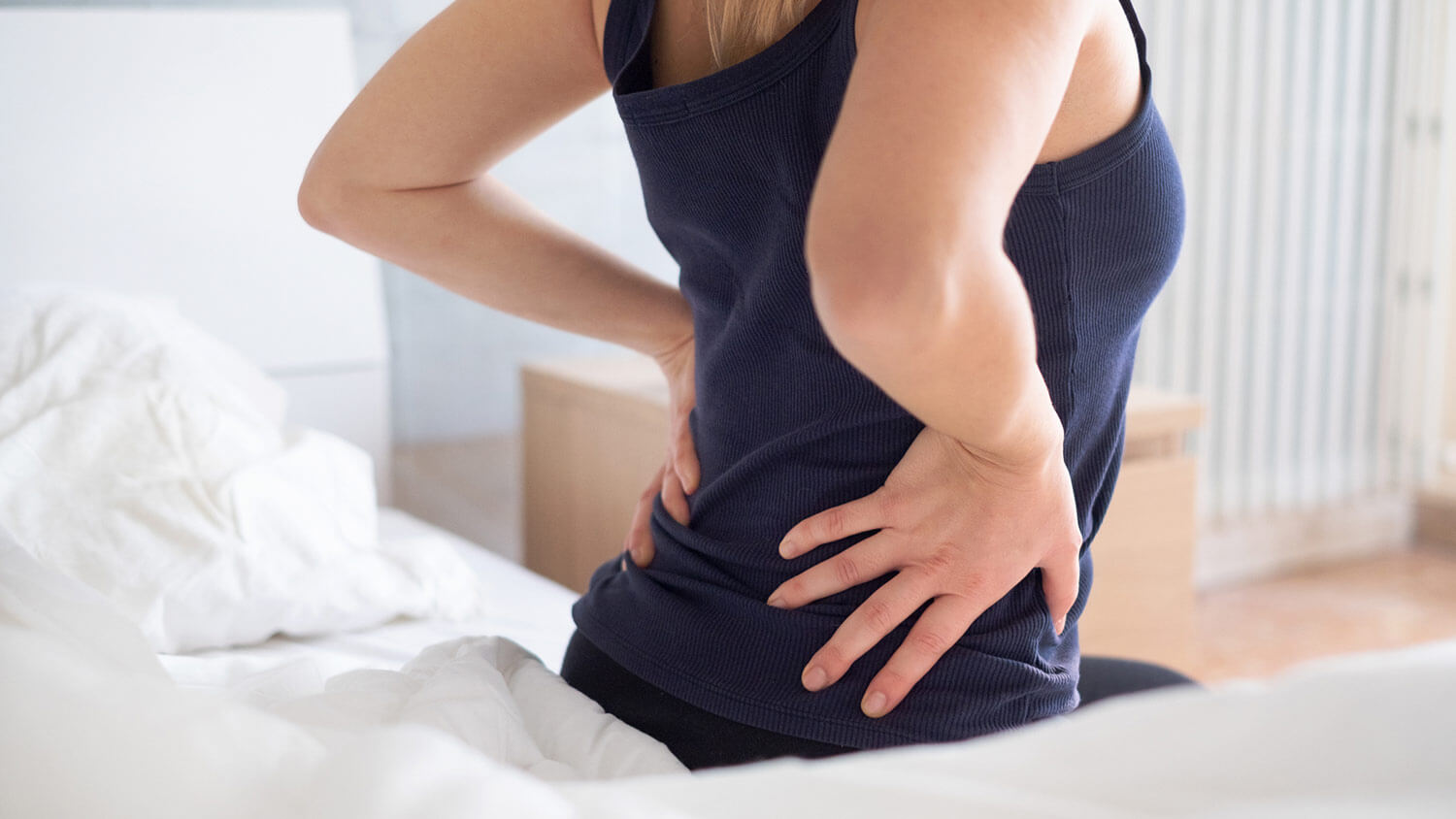
- 10% of the general population experiences hip pain, which typically increases with age.
- Studies show that people spend about 54% of the night on their sides, which can lead to hip pain.
- More than 30 million Americans live with osteoarthritis, a common cause of hip pain and stiffness.
Common Causes of Nighttime Hip Pain
A variety of issues can cause your hips to hurt. One study revealed that 10% of the general population experiences hip pain, which typically increases with age. The pain may be chronic or may show up only on occasion.
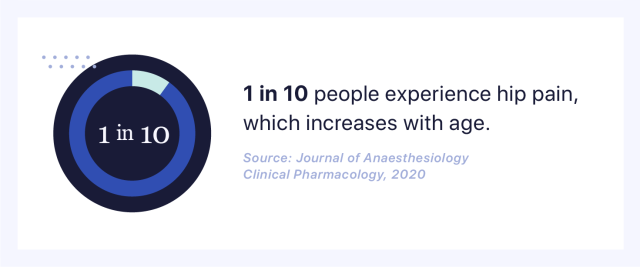
Experiencing hip pain while trying to sleep directly impacts a person’s quality of life. The list below outlines seven common causes of hip pain at night. Identifying the cause of your hip pain can help you and your medical team determine the best treatment plan.
1. Bursitis
Bursitis is the painful inflammation of one of the tiny fluid-filled sacs, known as bursae, that help reduce the friction that occurs with movement between the bone and soft tissue. They are found throughout the human body, but two reside in your hip. Either one can become inflamed, potentially due to overuse, rheumatoid arthritis, hip surgery or a hip injury.
2. Osteoarthritis
More than 30 million Americans live with osteoarthritis, making it the most common type of arthritis diagnosis. It is a degenerative joint disease that evolves with age as a result of “wear and tear” on the cartilage located at the ends of bones. As the cartilage deteriorates, the hip bones begin to rub against each other, causing pain and inflammation. This pain may be present throughout the day but worsen at night.
3. Sleep Position
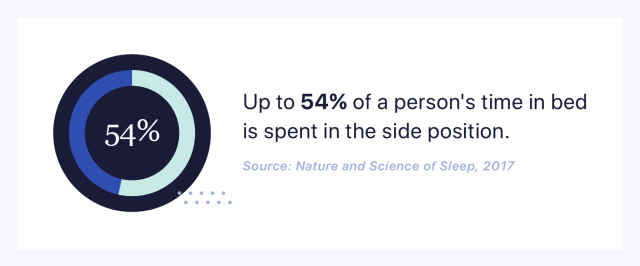
According to scientific research in the Nature and Science of Sleep journal, up to 54% of a person’s time in bed is spent in the side position. While there can be some benefits to side sleeping, such as decreasing the potential for sleep apnea and snoring, the habit can also lead to hip, shoulder, back and neck pain. The pressure of your body weight concentrated on only the side of your body while sleeping can lead to discomfort and sometimes pain.
4. Tendonitis
Tendonitis is the inflammation of the tendons, which are fibrous bands of connective tissue that join muscles to bone. They can become aggravated by decreased blood flow to the area while sleeping and the results of overuse during the day, making nighttime a vulnerable time for tendonitis pain to appear.
5. Mattress Quality
The firmness of your mattress may also be causing nightly hip pain. If the mattress is too firm or too soft, it can increase pressure points on certain parts of your body that manifest as hip pain.
6. Obesity
Research has shown that obesity increases the likelihood of developing chronic hip pain. The heavier a person is, the greater the potential for osteoarthritis as a result of joints bearing more pressure.
7. Pregnancy
As a woman’s body adjusts to carrying a child, the uterus expands and can put pressure on the sciatic nerve, which runs from your lower back to your feet. Expectant mothers may also experience round ligament pain, which manifests near the hips, abdomen and groin area, due to the stretching of the round ligament that connects the uterus to the groin.
Tips for Pain Relief
No one solution will work for everyone to decrease nighttime hip pain and improve sleep quality. But there are options worth trying to both address the pain and prevent it from coming back. Making some lifestyle changes is a good first step, aided by the knowledge that there are also surgical and pain management options available.
Quick Solutions
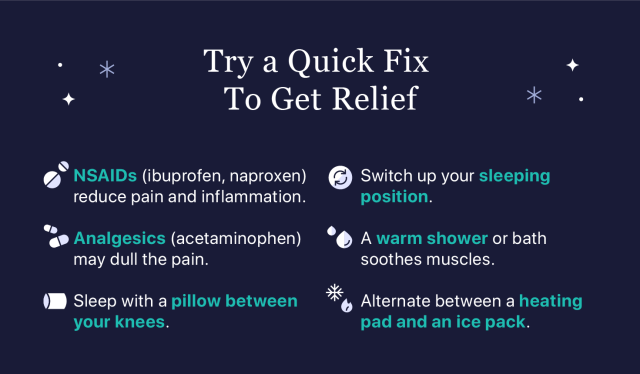
When acute hip pain is ruining your sleep, consider one of these options for some quick relief.
- NSAIDs: Over-the-counter nonsteroidal anti-inflammatory drugs such as ibuprofen, naproxen and aspirin can reduce pain and control inflammation.
- Analgesics: Acetaminophen (Tylenol) can be useful in reducing pain levels, but it does not reduce inflammation.
- Pillows: Side sleepers can place a pillow between their knees to help keep their legs parallel and reduce pressure on their joints.
- Sleeping Position: If you are a side sleeper in pain, try turning over to sleep on your other side or on your back. For those who are back sleepers, try switching over to side sleeping for a few nights. Short-term side sleeping should offer relief rather than pain for consistent back sleepers.
- Warm Shower or Bath: Reduce your stress levels and let the warm water of a bath or shower soothe your joints before bed.
- Heating Pad and an Ice Pack: Alternate between hot and cold compresses in 20-minute increments. The heat can help release some joint stiffness and relieve pain, while the cold will numb the area.
Long-Term Relief
When hip pain becomes more persistent or chronic, one of these tips may be the answer.
- Schedule regular physical therapy or massages.
- Corticosteroid injections into the hip can reduce inflammation.
- Buy a new mattress to insure the best firmness for your body.
- Consider arthroscopy, a surgery to remove loose pieces of cartilage or bone spurs around the hip.
- Extract fluid from the bursae to reduce pressure on the joint.
- Discuss hip resurfacing, which is a less extensive type of hip replacement, with a medical professional.
- Confer with a doctor about hip replacement surgery.
Long-term medical solutions such as those listed above each have their own benefits and risks to consider. For example, corticosteroids are a noninvasive option that can help suppress pain but their effectiveness typically only lasts from six weeks to six months. Hip replacement surgery can provide a dramatic reduction in pain and improved hip mobility, but hip replacement complications can lead to more intense injuries and other health issues.
Prevention Strategies
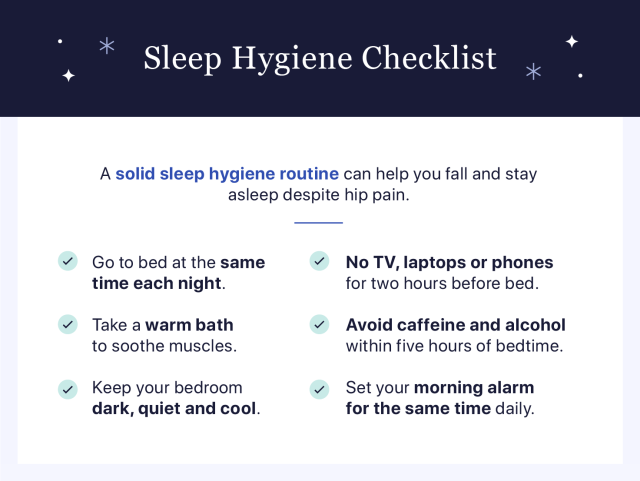
Some simple lifestyle changes can make a big difference in the pain you experience at night. Keep these ideas in mind in your effort to prevent hip pain from returning.
- Try low-impact exercises, such as swimming or yoga.
- Perform daily stretches.
- Avoid being sedentary for long periods of time.
- Practice good sleep hygiene.
- Lose weight if you are obese.
- Wear appropriate footwear for activities.
- Avoid repetitive movements.
Many people find relief from hip pain by incorporating small changes into their sleep habits. If pain persists, it might be time to seek the help of a health care provider.
When To Call a Doctor
Knowing when to contact a medical professional about hip pain at night can be challenging. You should talk to your doctor if the pain is causing constant interruptions to your sleep patterns. Visit the emergency room if the pain is caused by a sudden injury.
- Can’t move your leg or hip.
- Can’t bear weight on your affected leg.
- Severe hip pain.
- Signs of infection.
- Sudden swelling of your hip.
At-home solutions to hip pain are not effective for everyone. Medical intervention is necessary for many people. Hip replacement surgery is one of the most common joint replacement procedures done in America. The current average age of hip replacement patients is 66 years of age and researchers estimate there will be over 780,000 such surgeries each year by 2030.
Sleep loss resulting from hip pain at night can seriously impact your quality of life. Before you spend months in recovery from a full hip replacement, making some simple lifestyle changes could help you get back on track with comfortable sleep. Developing a treatment plan with your medical team is critical to finding the long-term solution that’s right for you.

Calling this number connects you with a Drugwatch.com representative. We will direct you to one of our trusted legal partners for a free case review.
Drugwatch.com's trusted legal partners support the organization's mission to keep people safe from dangerous drugs and medical devices. For more information, visit our partners page.

